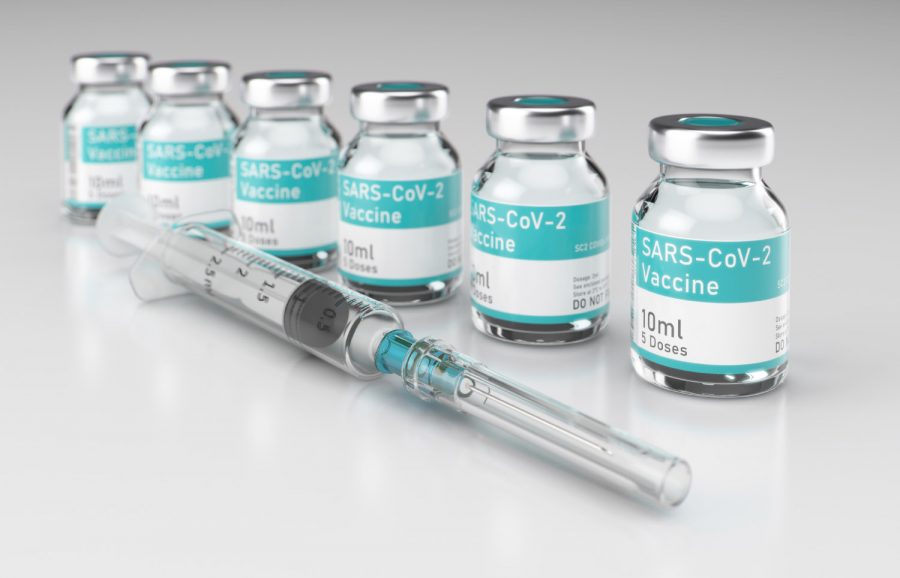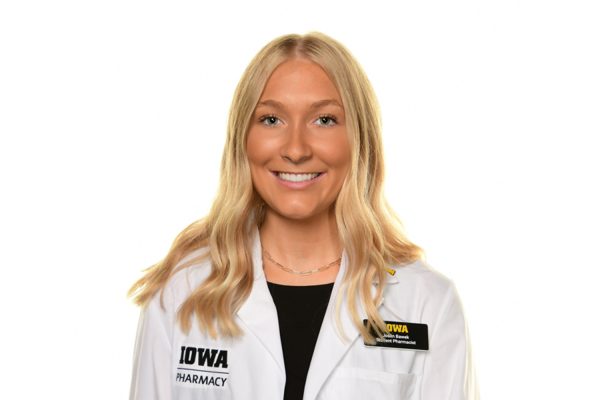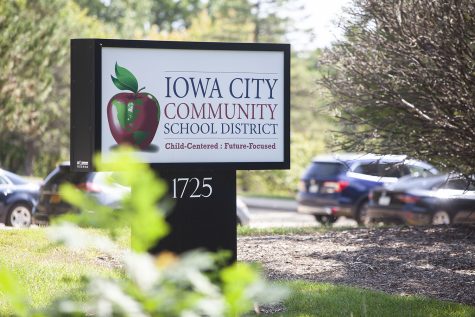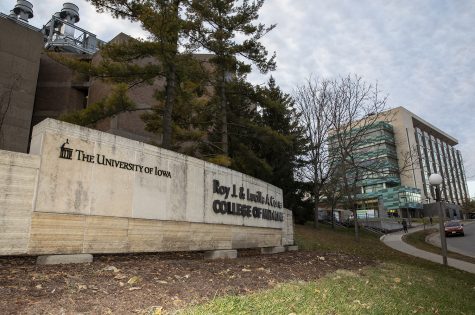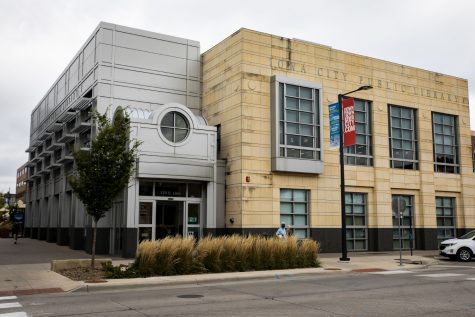Guest Opinion | COVID-19 Vaccine Could be Weeks Away
The University of Iowa Vice President for Medical Affairs writes that COVID-19 vaccine trials are wrapping up, and a vaccine could arrive as soon as the end of November.
Rendered Illustration of Coronavirus SASRS-CoV-2 vaccine (which is scheduled to become available in 2021). Syringe and several filled vials on bright shiny floor.
October 25, 2020
The new coronavirus SARS-Cov-2 (COVID-19) was discovered last December in China and has since infected over 42 million people and caused over 1.2 million deaths worldwide. In Iowa, there have been over 115,000 COVID-19 cases and over 1600 related deaths. At least 2,100 University of Iowa students have been confirmed infected since the beginning of the semester.
Despite excellent timely testing and treatments for COVID-19 at UIHC (convalescent plasma, Remdesivir, dexamethasone, monoclonal IgG COVID-19 antibodies (Regeneron), and exceptional supportive care), the number of deaths nationally are occurring at a rate greater than 33,000/month. A vaccine to prevent COVID-19 infection or at least symptomatic disease is desperately needed.
Currently there are over 45 vaccines in trials worldwide, but only four in randomized placebo-controlled Phase III trials today in the U.S. (Pfizer, Moderna, AstraZeneca, and Johnson and Johnson). However, the last two are on hold by the FDA due to at least one serious patient adverse outcome each.
Both Pfizer and Moderna have completed enrollment of their initial 30,000 subjects in their trials and use a new technology involving the injection of a lipid nanoparticle with a messenger RNA that encodes the COVID-19 spike protein to elicit an immune response.
The Phase I/II studies of these two vaccines have recently been published and show excellent generation of neutralizing antibody titers in both young and old subjects after a two-dose regimen given several weeks apart. Side effects were seen with each vaccine, primarily pain at the injection site and fatigue for the first day or two for the vast majority of subjects, but no serious adverse events.
FDA approval for use of the vaccine will require that the Phase III trials demonstrate safety and at least 50 percent efficacy. The Pfizer trial is a month ahead of Moderna having enrolled close to 44,000 subjects, including 265 subjects enrolled at University of Iowa Hospitals and Clinics since July involving mostly health-care workers and students. It is likely that the number of transmissions in the trial necessary for review will be achieved within the next couple of weeks. If safety and efficacy are shown, the FDA could approve emergency use 2-4 weeks later according to Moncef Slaoui, head of the federal Operation Warp Speed COVID-19 Vaccine initiative.
Anticipating we will have an effective vaccine, the federal government has already contracted with Pfizer and Moderna to manufacture and purchase hundreds of millions of doses. These would be distributed to the states for distribution to various health-care providers within the next few weeks. Freezers to store the anticipated 60,000 doses of Pfizer vaccine and 90,000 doses of Moderna vaccine have already been shipped to UIHC so that we could start vaccinations perhaps by the end of November.
The Iowa Department of Public Health, with UIHC input, is currently establishing the priorities concerning who should get the vaccine first. We anticipate that health-care workers, older residents and staff in retirement communities, and first responders will likely be high on the list, but could include students, faculty and staff at high risk for serious COVID-19 disease. We plan to vaccinate individuals here at UIHC and at our Iowa River Landing clinic.
Many have expressed reluctance to take a COVID-19 vaccine or vaccines in general, but history has shown vaccines have saved millions of lives over the past 200 years with only very rare serious adverse events. We encourage everyone to take advantage of a COVID-19 vaccine should the data show them to be safe and efficacious as it will protect individuals from COVID-19 disease and/or decrease the spread to others who are more vulnerable.
—Ava Johnson, Research Assistant, Major: Human Physiology, CLAS, U Iowa, Class 2022 junior
—Brooks Jackson MD MBA, Professor of Pathology and Dean, Carver College of Medicine, Vice President of Medical Affairs, University of Iowa Health Care



